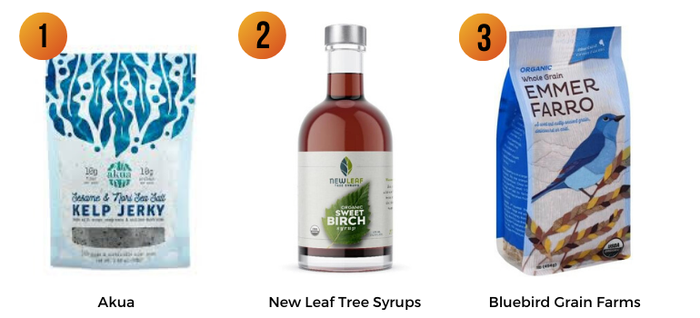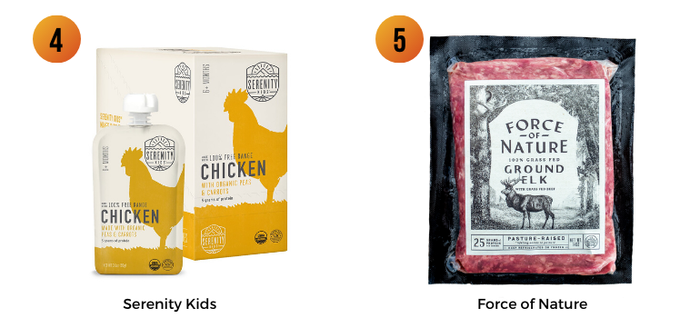5 companies innovating in 'regenerative agriculture' trend
NEXT Trends 2020 Expo West series—a look at "regenerative agriculture," one of the New Hope Network NEXT Data and Insights team's agricultural trends.
April 15, 2020

NEXT Trends 2020 series: In an effort to help support retailers and brands, we will be publishing regular brand features for the next few weeks. Brands are selected from those that registered to exhibit at Natural Products Expo West 2020 and were curated as great examples of one of 50 trends New Hope Network is monitoring in the marketplace.
These trends are part of New Hope Network's NEXT Expo Guidebook and trend hierarchy.
Today, we look at five companies that are innovating in the "Regenerative Agriculture" trend within the Agricultural Commitments macro force. Enthusiasts around regenerative agriculture promote a paradigm shift that there is a solution that rebuilds, repairs and replenishes our natural resources through ecological practices. This is instead of current sustainability efforts that, while well intentioned, are aimed at solving climate problems through limited resources, and working within our vanishing resources to prevent further loss of biodiversity, soil and forests.

1. Akua
What is it? Akua makes kelp jerky combined with shitake mushrooms. Its seagreens are grown in regenerative ocean farms.
Innovation: Akua creates carbon-negative foods. Its first product is kelp jerky: a high-protein, high-fiber, low-sugar snack. Kelp farming is a zero-input crop that requires no fresh water, no fertilizer, no feed and no arid land to grow. Kelp also filters carbon and nitrogen from the water and creates new jobs for coastal communities. Akua sources seagreens from a network of regenerative ocean farms along the Northeast coast of the U.S.
2. New Leaf Tree Syrups
What is it? New Leaf Tree Syrups sells Maple, Beech, Birch and other tree syrups, all USDA Organic and regeneratively grown.
Innovation: New Leaf Tree Syrups offers one of the greatest varieties of plant-based syrups in the world. By supporting a biodiverse forest cultivation of syrups, New Leaf Tree Syrups also offers seasonally foraged specialties such as fiddleheads and wild leeks.
3. Bluebird Grain Farms
What is it? Bluebird Grain Farms sells certified organic ancient grains, fresh-milled flour and whole-grain handcrafted blends.
Innovation: Bluebird grows a variety of ancient grains like Emmer, Einkorn, Red Spring Wheat, White Spring Wheat and Rye. Bluebird practices regenerative farming practices such as planting cover crops that build organic matter, timing tillage for natural weed control and incorporating grain straw back into soil. It also stores grain in custom-built, old-world wooden granaries that stave off mold and rot without chemicals by absorbing moisture.

4. Serenity Kids
What is it? Serenity Kids sells certified organic baby food in shelf-stable squeeze pouches.
Innovation: Its ingredients—meats, fruits and vegetables—are sourced from small family farms that use regenerative agricultural techniques to improve soil microbial health, reduce water runoff and sequester carbon. The meats are humanely raised, and the products are clean label and avoid grain fillers and allergens.
5. Force of Nature
What is it? Force of Nature sells regeneratively sourced, conservation-focused, carbon-sequestering, soil-building, 100% grass-fed and grass-finished meat.
Innovation: Force of Nature relies on regenerative agricultural practices as a means of fighting climate change and preventing system collapse. Its partner farms raise grass-fed, grass-finished heritage pigs, venison, beef, bison and elk. Wild boar meat is also sold by Force of Nature, though the boar are trapped by ranchers as opposed to pasture raised. Force of Nature uses five self-defined practices to define and uphold regenerative standards.
About the Author(s)
You May Also Like




